 Manjari
Manjari 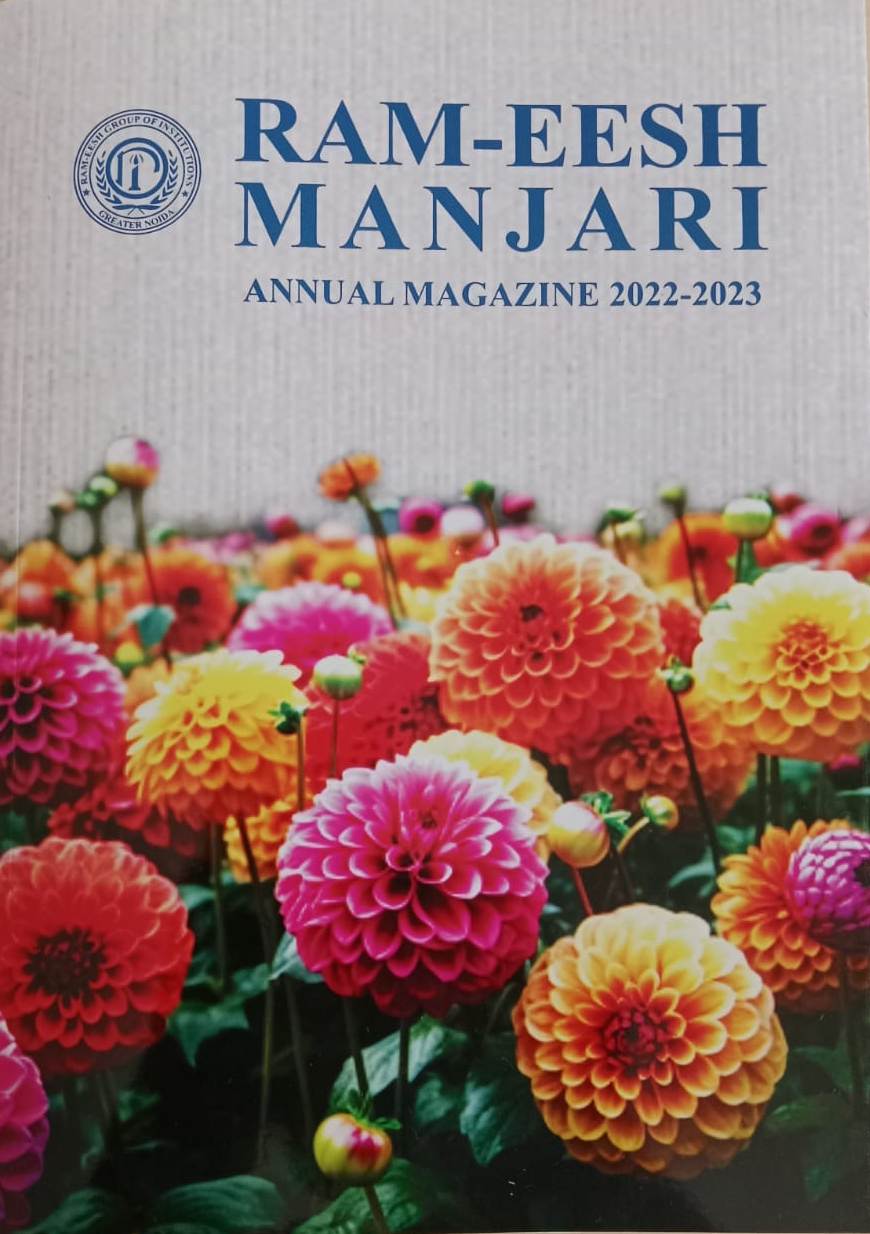 Virtual Tour
Virtual Tour  Gallery
Gallery 
The Government of India's Ministry of Education developed the "MoE Innovation Cell (MIC)" to consistently promote innovation culture in all higher education institutions (HEIs). The main goal of MIC is to support, encourage, inspire and promote young students as they seek to develop new concepts into prototypes, start-up businesses, and entrepreneurial endeavors. All of the nominated higher education institutions (HEIs) are encouraged to establish "Institution's Innovation Councils" (IICs), according to the concept of MIC. The Innovation Councils (IICs) of these institutions form a network to encourage innovation within the institution through a variety of channels, creating an eco-system for campus-wide innovation promotion. The Ram-Eesh Institute of Vocational and Technical Education (RIT) is a proud participant under the MIC project of the Institution's Innovation Council at its facilities.
• To establish a thriving regional innovation sector.
• To support mechanisms for startups and entrepreneurship in HEIs.
• To prepare the institution to be ranked by Atal on the Innovation Achievements Framework (ARIIA).
• To provide a functional ecosystem for ideas scouting and idea pre-incubation.
• To improve the cognitive abilities of students studying technology.
To be a center of academic excellence with a global reach that thrives on innovation, R&D, intellectual property rights, and design thinking to produce innovative and socially conscious professionals and entrepreneurs.
Mission• To encourage the creation of an environment for innovation, entrepreneurship, research, and product development.
• To instill principles and ethics in order to create technocrats who are socially conscious and who use their startups to address global issues.
| Name of IIC Member | Member Type(Teaching/Non- teaching/External Expert/ Student) | Key Role/Position assigned in IIC |
|---|---|---|
| Dr. Pallavi Manish Lavhale | Principal & Teaching | President |
| Dr. Richa Tewari | Teaching | IPR Activity Coordinator, NIRF Coordinator |
| Dr. Sandeep Kumar Bansal | Teaching | Startup Activity Coordinator, ARIIA Coordinator |
| Dr. Reema Sinha | Teaching | Vice President |
| Mr. Pankaj Kumar | Teaching | Social Media, Internship Activity Coordinator |
| Dr. Azhar Danish Khan | Teaching | Convener ,Innovation Activity |
| Dr. Payal Kesharwani | Teaching | Member |
| Mr. Vishal Sachan | External Expert | Members |
| Nikita | Student | Member |
| Prachi | Student | Member |
| Shivam Yadav | Student | IPR Coordinator |
| Harsh | Student | Start up Coordinator |
| Harshit Bisht | Student | IPR Coordinator |
| Mohit Kumar | Student | Start up Coordinator |
| Kanak Gupta | Student | Innovation Coordinator |
| Shubham Prata Choubey | Student | Social Media Coordinator |
| Divyansh Maurya | Student | Internship Coordinator |
1. Collaborative and Multidisciplinary work
Recognize opportunities and positively contribute to collaborative-multidisciplinary scientific research by working as a team, making decisions based on open-mindedness, objectivity, and rational analysis in order to accomplish shared goals with the knowledge and understanding of group dynamics.
2. Project Management and Finance
As a team member and team leader, demonstrate knowledge and understanding of pharmaceutical and management principles and apply them as well. Demonstrate how to manage projects effectively in the respective fields and in multidisciplinary settings while taking economic and financial considerations into account.
3. Communication
Communicate confidently and effectively with the pharmaceutical industry and society at large about complex health activities, including the ability to understand, write, and design documentation in accordance with appropriate standards, deliver and receive clear instructions, and make effective presentations.
4. Research outcomes and Entrepreneurship
Develop the capacity to communicate research findings through publications and presentations that are helpful to the government, pharmaceutical firms, healthcare providers, and the community. Provide a dependable source of information for industry research, consultations, and training collaborations. Possess the capacity to start an entrepreneurial venture and find business opportunities.
5. Life-long Learning
Acknowledge the importance of, and be prepared to engage in autonomous lifelong learning with a high level of enthusiasm and dedication to continuously increase knowledge and competence.
6. Ethical Practices and Social Responsibility
Develop intellectual and professional integrity, professional code of conduct, research and scholarship ethics, awareness of the influence of research findings on professional practices, and awareness of obligation to give back to the community for the sustainable advancement of society.
• To promote innovation at the institution, creating an ecosystem for doing so on campus and in the neighborhood.
• Implement a variety of the Central MIC-recommended innovation and entrepreneurship-related activities throughout the year in a planned and timed manner to foster these traits among the interested students.
• Mobilize the necessary hardware and software resources, designated work areas, and seed funds to aid students and professors in transforming breakthrough ideas into observable proof of concepts and functional prototypes.
• Organize recurring workshops, seminars, hackathons, concept competitions, etc. as well as interactions with business owners, experts, and building a mentor network for young innovators.
• Encourage young innovators to take part in competitions like hackathons and design competitions while also connecting them with mentors.
• Identify and award students’ promising ideas, and share their success stories with diverse stakeholders.
• Provide hand holding and pre-incubation help to prospective student entrepreneurs who want to launch businesses or companies based on their original ideas or patent filing,
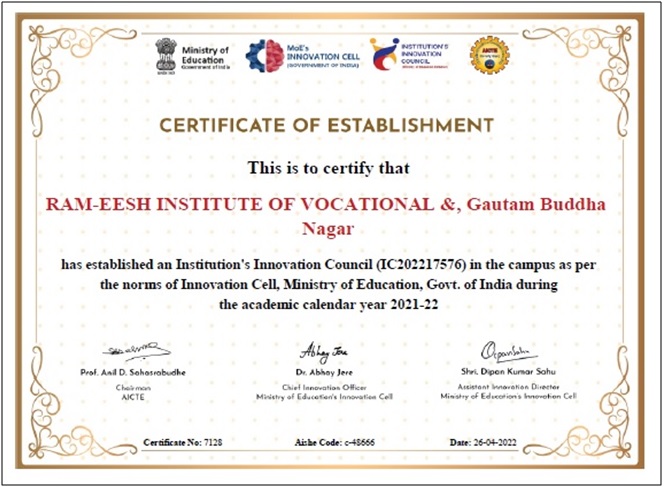
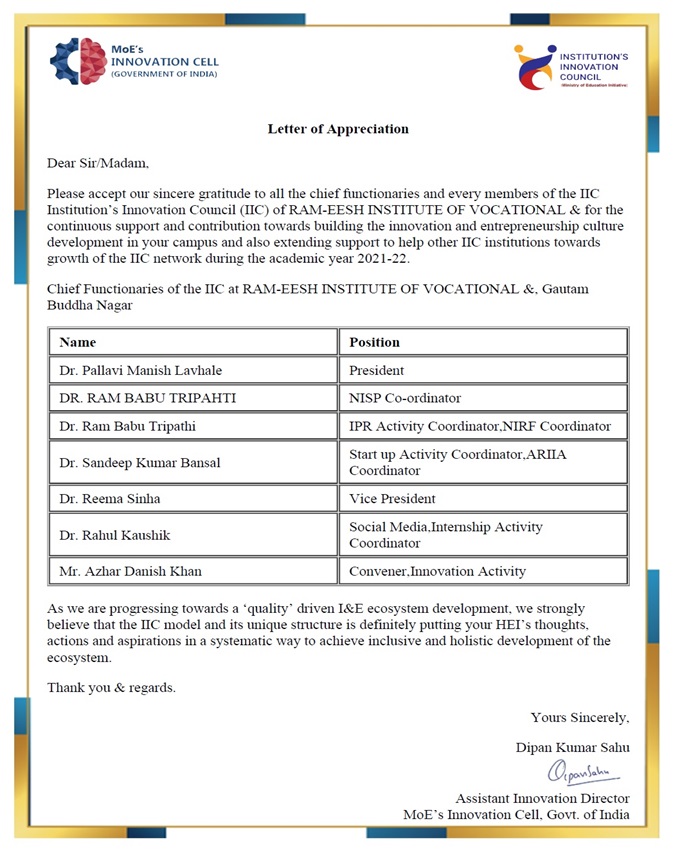
| Sr. No. | Name of Grant | Funding Agency | Amount of Grant Received | Name of Principal Investigator | Year |
| 1 | MODROBS | AICTE | Rs. 1349020/ | Dr. Jainendra Jain | 2020-21 |
| 2 | Research | Pharmazz India Pvt. Ltd. | Rs. 5,50,000/ | Dr. Pallavi M. Lavhale | 2020-21 |
| 3 | RPS | AICTE | Rs. 8,30,000 | Dr. Jainendra Jain | 2012-13 |
| 4 | MODROBS | AICTE | Rs. 12,50,000 | Dr. UmaKant Bajaj | 2012-13 |
| Sr. No. | Name of Grant | Funding Agency | Amount of Grant Received | Name of Principal Investigator | Year |
| 1 | Computer Aided Design of Useful Medicines | MSME, GOI | Rs. 6,25,000 | Dr. Jainendra Jain |
2016-17 |
| 2 | Development of Protective Herbal Gel for Skin Ailments. | MSME, GOI | Rs. 4,46,250 | Dr. Pallavi M. Lavhale |
2016-17 |
| Sr. No. | Name of FDP/ Seminar | Funding Agency | Amount of Grant Received | Name of Coordinator | Year |
| 1 | National Seminar on Paradigm Shift of Pharmacy Teaching According to 21st Century of Indian Scenario | Dr. A.P.J. Abdul Kalam Technical University (AKTU) | Rs.50, 000/ | Dr. Jainendra Jain / Dr. R. B. Tripathi | 2019-20 |
| 2 | Faculty Development Programme on Computational Methods Applied to Drug Discovery/Design | Dr. A.P.J. Abdul Kalam Technical University (AKTU) | Rs.1,50, 000/ | Dr. S.K Bansal | 2017-18 |
| 3 | National Seminar on Challenges and Opportunities in Nano-pharmaceuticals | Dr. A.P.J. Abdul Kalam Technical University (AKTU) | Rs.50, 000/ | Dr. Sonal Setya | 2017-18 |
| 4 | National Seminar on Evidence based Alternative Medicine: Challenges and Opportunities | Department of Science & Technology (DST) | Rs.50, 000/ | Dr. Jainendra Jain/ Dr. Pallavi M. Lavhale | 2015-16 |
| 5 | National Seminar on Recent Advances in Central Nervous System Drug Discovery | Department of Science & Technology (DST) | Rs.50, 000/ | Dr. Jainendra Jain/Dr. Lubhan Singh | 2015-16 |
| 6 | National Seminar on Computer aided Drug designing | All India Council for Technical Education (AICTE) | Rs.1,50, 000/ | Dr. Jainendra Jain | 2013-14 |
| Sr. No. | Name of Programme | Funding Agency | Amount of Grant Received | Name of Coordinator | Year |
| 1 | Entrepreneurship Awareness Camp | NSTEDB, DST, Govt. of India | Rs. 20,000/ | Dr. R. B. Tripathi |
2021 |
International Journal of Pharmaceutical Education and Research(IJPER) is a peer-reviewed, open access online journal published on behalf of the Rama-Eesh Charitable Trust, Greater Noida in association with Ram-Eesh Institute of Vocational and Technical Education, Greater Noida. IJPER is a biannually published, international, journal devoted to various segments of pharmaceutical sciences, education and research. IJPER is run by a team of dedicated researchers from academics and industrial community and is committed to publish only quality manuscripts (original research, reviews, short communications, mini reviews and case reports) relevant to the various segments of Pharmaceutical Sciences. IJPER aims to share scientific outcomes of academic and industrial research on an integrated international online platform. IJPER is committed to serve scientific community with highest levels of Professional Ethical Conduct.
• Pharmaceutical Chemistry
• Pharmaceutical Analysis and Quality Assurance
• Biochemistry and Clinical Pharmacy
• Pharmacognosy, Ethnobotany & Natural Products Chemistry
• Ayurveda, Siddha, Unani and other Alternative and complementary Medicines
• Pharmacology, Ethnopharmacology and toxicology
• Pharmaceutical Biotechnology & Microbiology
• Hospital Pharmacy and Community Pharmacy
• Pharmaceutics & Biopharmaceutics
• Drug Regulatory Affairs and Pharmaceutical Marketing Research
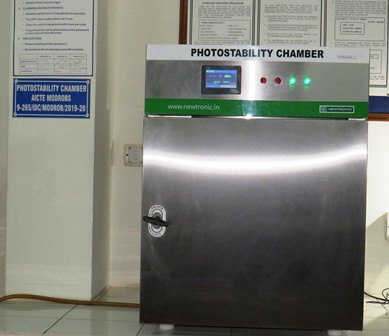
Photostability Chamber
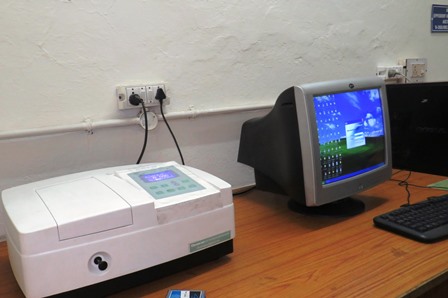
UV-Visible Spectrophotometer
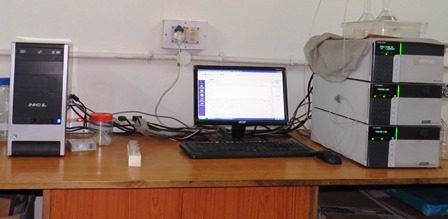
HPLC
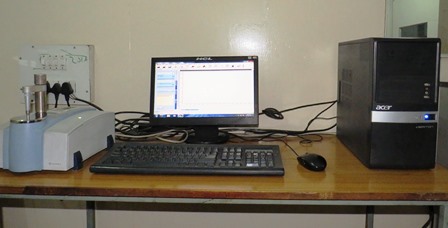
FTIR
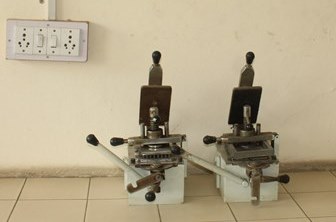
Capsule Filling Machine
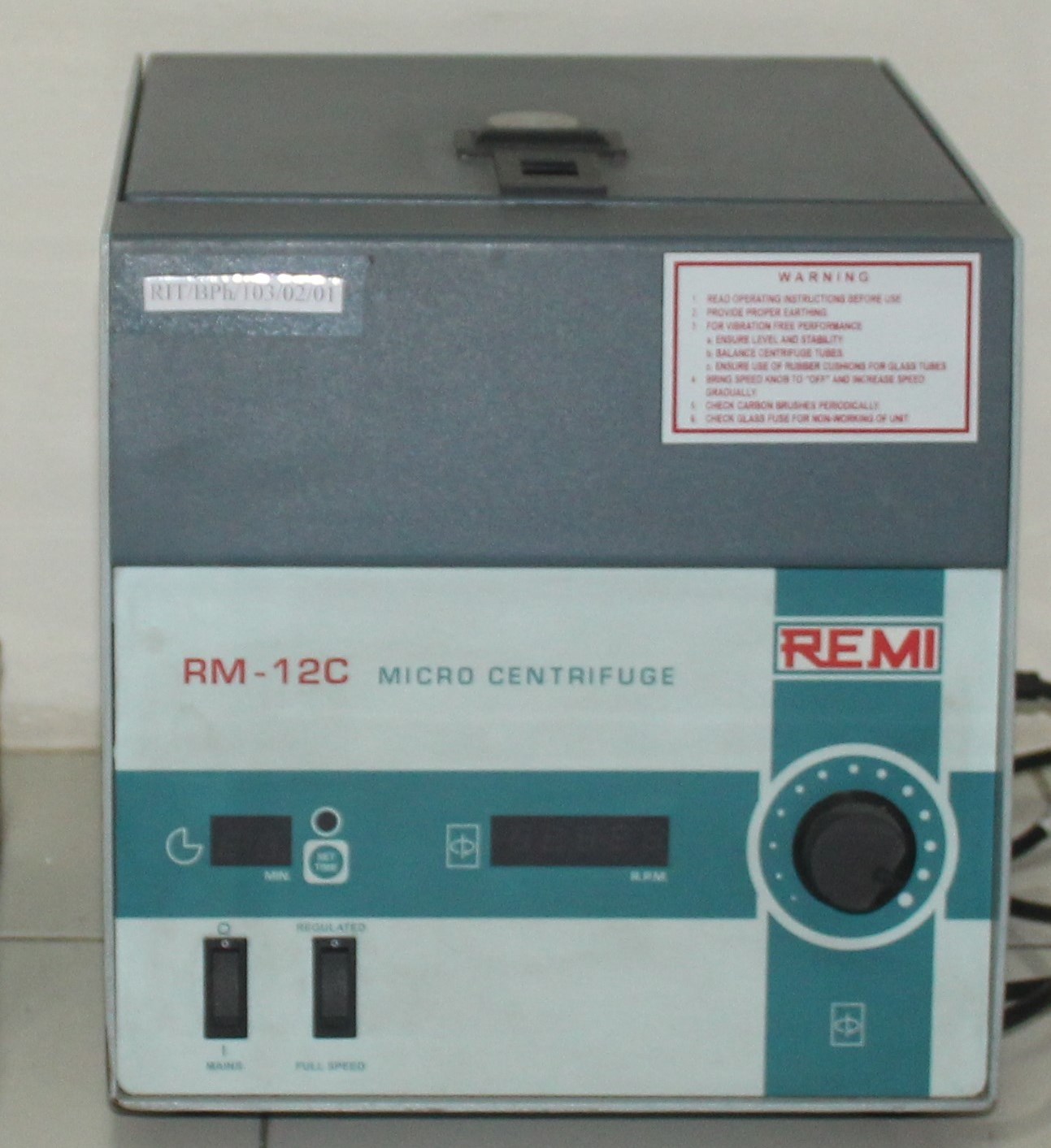
Centrifuge
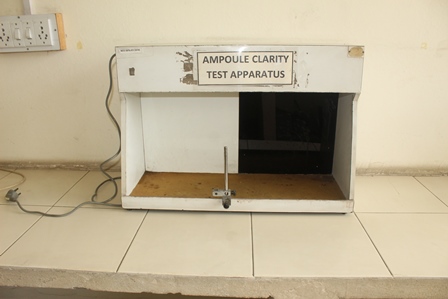
Clarity Test Apparatus
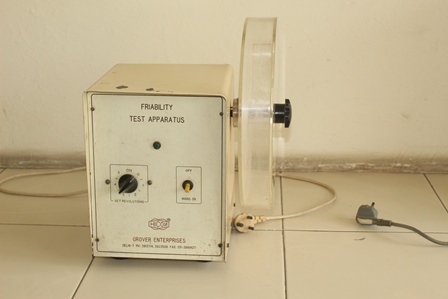
Friability Test Apparatus
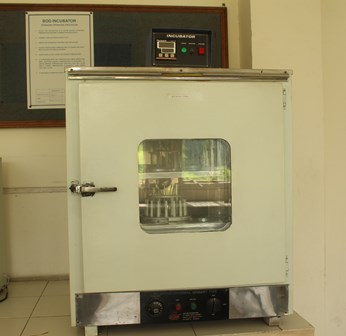
Incubator
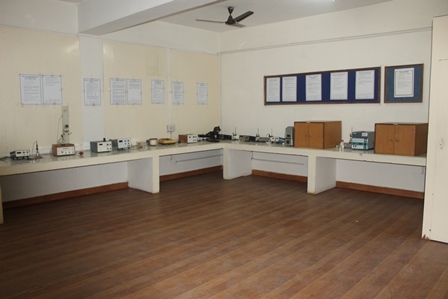
Instrument Lab
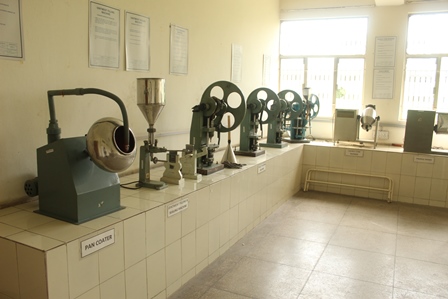
Machine Room
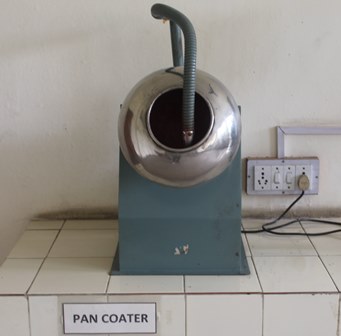
Pan Coater
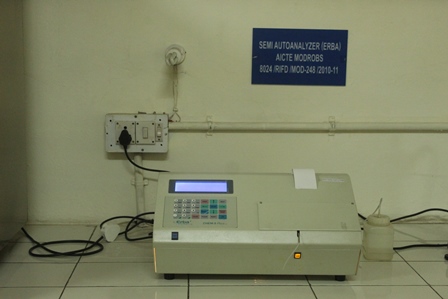
Semi Autoanalyser
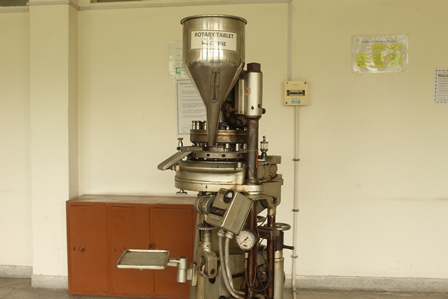
Tablet punching machine
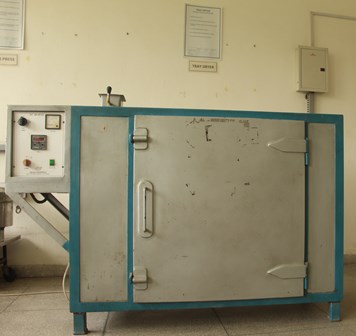
Tray Dryer
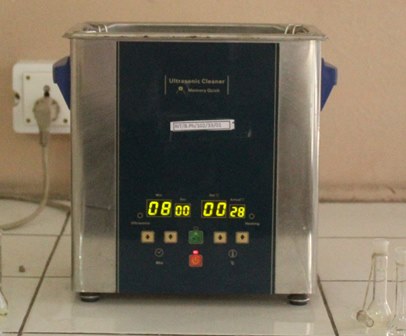
Ultrasonic Bath Sonicator
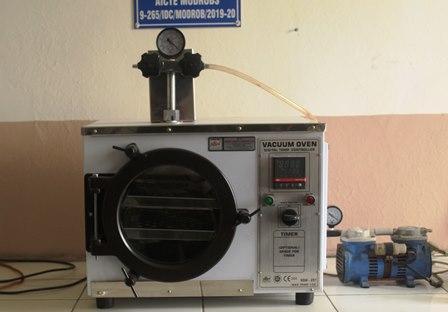
Vacuum Oven
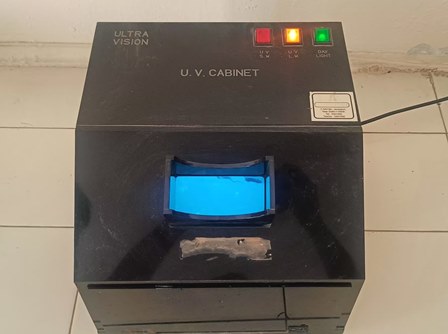
UV Cabinet
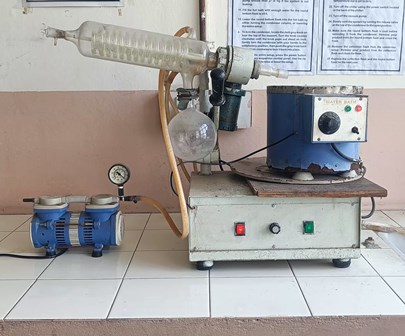
Rota Evaporator
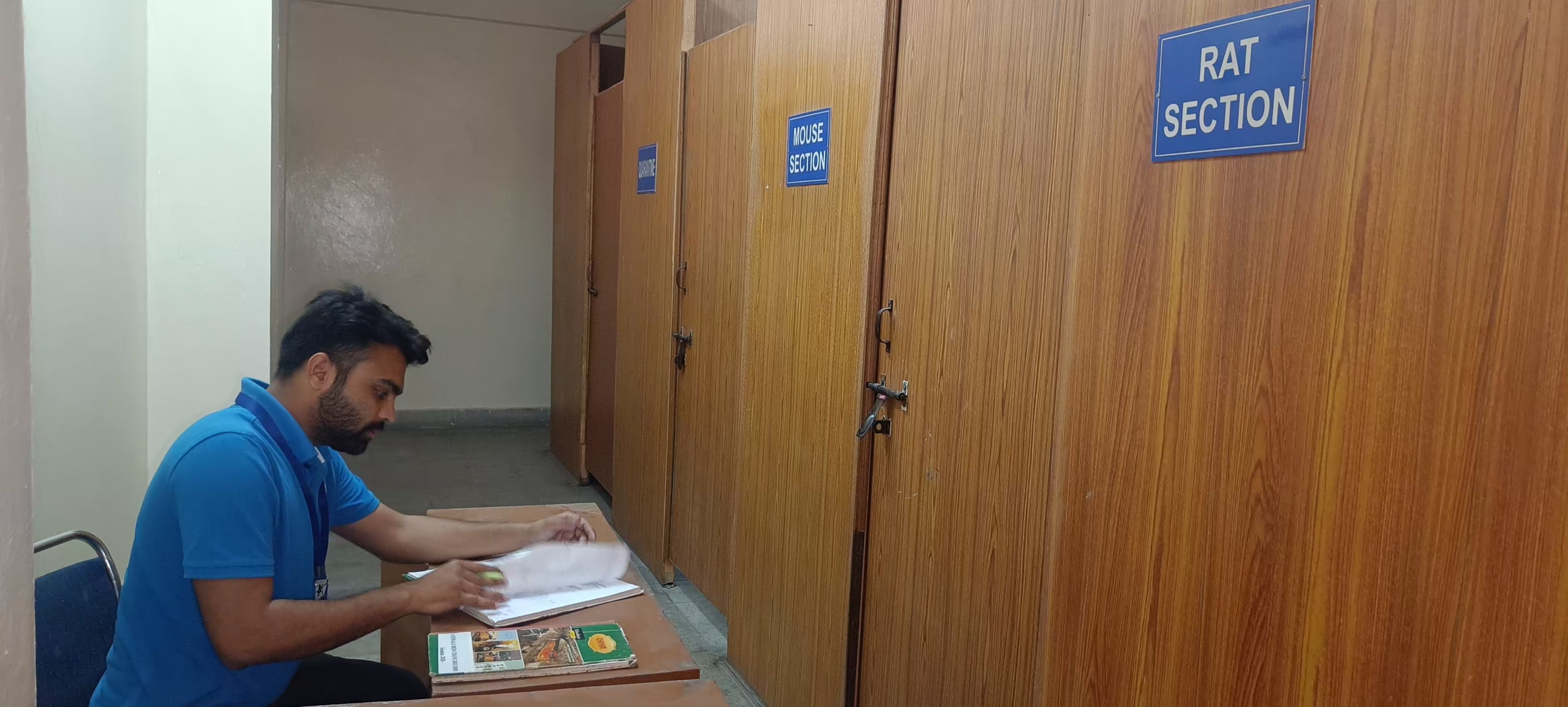
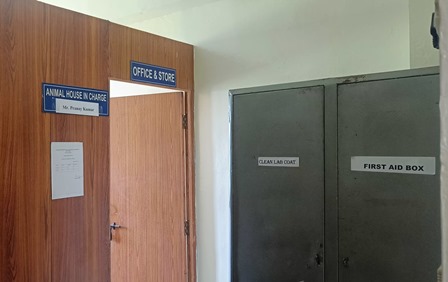
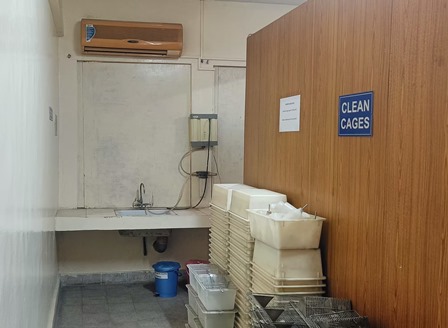
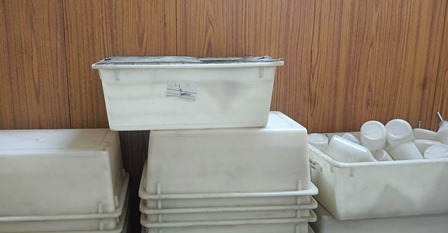
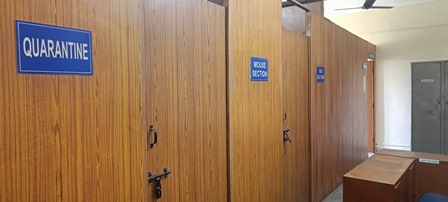
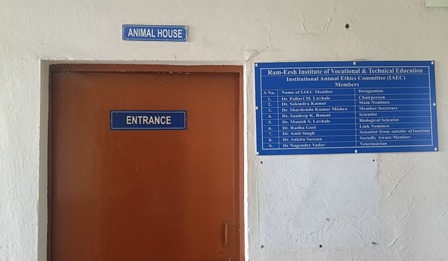
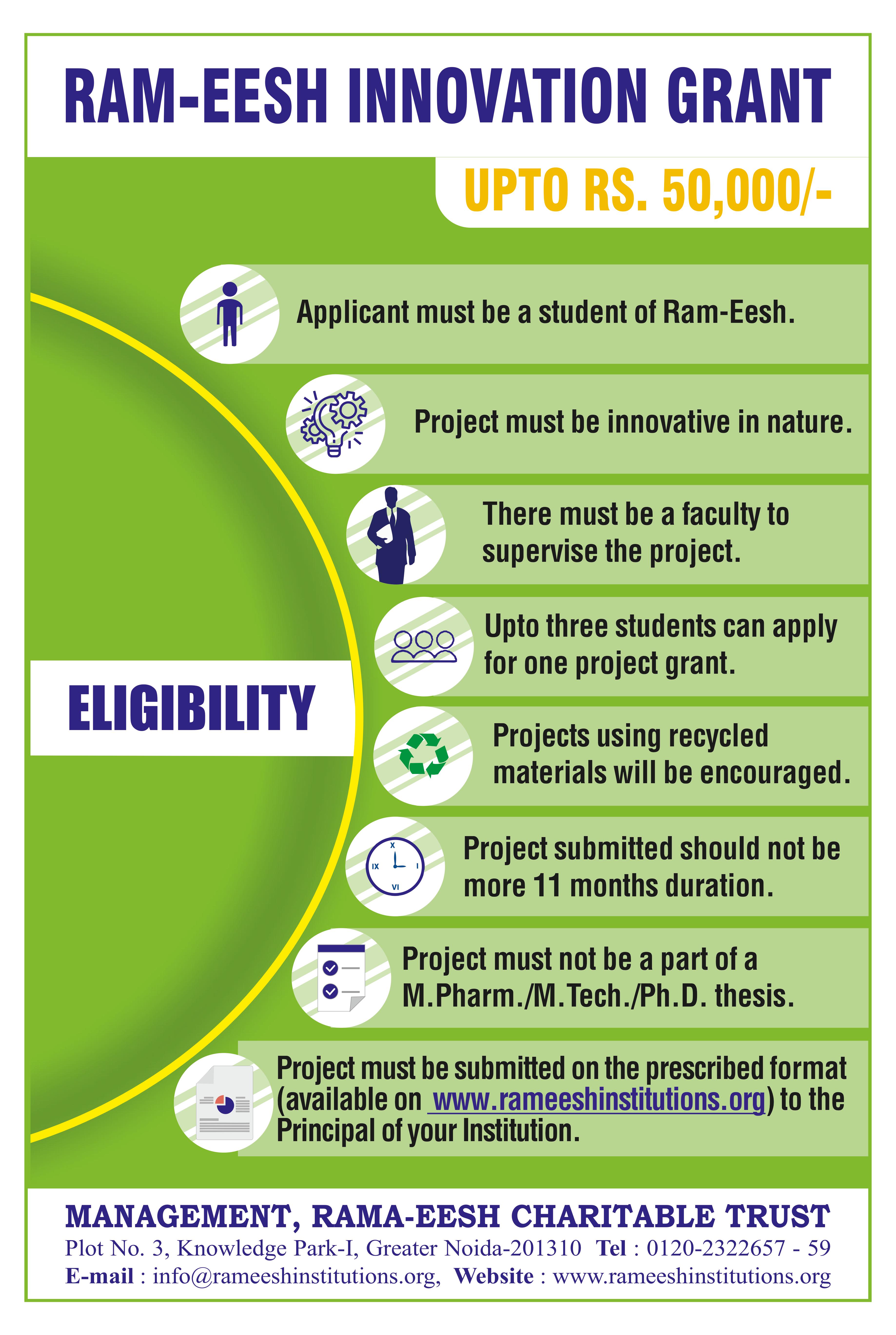
| 1. | A “Skill Development Training Program” on “Employability Skills” and “Life Skills" was conducted for B.Pharm third year students by Mr. Maheep Singh and Mr. Shikhar Prajapati, Rubicon from March 14-17, 2023. |
| 2. | An “Awareness Program & Pre-Placement talk on Drug Regulatory Affairs & Pharmacovigilance” was organized on March 1, 2023 by Mr. Pradeep Vats (Coordinator PRI), Mr. Deepak Sharma (Technical Expert PV & DRA) & Kunwar Srivastava (Institution Manager) from ACPL, Noida. |
| 3. | A seminar on “Introduction of IPR & Patents” was held on November 25, 2022 by Mr. Sachin Bindal, Patents Attorney in K&S Partners, Gurgaon. |
| 4. | A seminar on “Career in Pharmaceutical Marketing” was organized on November 18, 2022 by Mr. Yogiraj Singh (Sr. Specialist, Edwards Lifesciences, and New Delhi). |
| 5. | An expert talk on “Career as Drug Inspector – How to Become Successful?” was conducted on November 18, 2022 by Mr. Vishal Sachan (Drug Inspector, Drugs Control Department, Govt. of NCT, Delhi). |
| 6. | An expert talk on was organized on November 12, 2022 by Mr. Kalhan Bazaz (Managing Director of J.K. Polytec). |
| 7. | A guest lecture on “Pharmacist & Pharmacy Profession, Inside on Career in Clinical Research” was organized on November 12, 2022 by Dr. Neeraj Kumar (Sr. Research Manager, Translumina Therapeutics LLP Delhi. |
| 8. | An expert talk on “Role of Pharmacist in Manufacturing of Pharmaceutical Product” was conducted on November 12, 2022 by Mr. Rajesh Agrawal (General Manager, Modi-Mundipharma R&D Centre, Modipuram). |
| 9. | A skill based training program for students of B.Pharm final year & D.Pharm final year was organized in collaboration with “GTT Foundation” sponsored by BARCLAYS CSR from September 19-23, 2022. |
| 10. | A seminar on “Pharmcovigilance” was conducted on May 2, 2022 by Dr. Rohit Singhal, Sr. Safety Manager, IQVIA. |
| 11. | A seminar on “Save Soil” was conducted on April 28, 2022 by Mr. Vishal Sharma, Earth Buddy, Conscious Planet and his team. |
| 12. | A seminar on “Career Opportunity in Pharmacy” on April 22, 2022 by Dr. Smriti Khatri, Assistant Manager, HOER, WNS Global Services. |
| 13. | A webinar on “Stress Management, Way to See Covid Pandemic” was conducted in association with ISKON on June 12, 2021. |
| 14. | A one-day webinar on “MISSION SHAKTI ABHIYAN” by presented by Mr. Shailendra Bahadur Singh (District Social Welfare Officer, Gautam Buddha Nagar) and Ms. Arti Chauhan, (Global Diversity Inclusion and Racial Equity at Genpact) on October 22, 2020. |
| 15. | A one-day webinar on “E-Commerce in Pharmaceuticals, An Emerging Segment of Business” was conducted by Mr. Rajiv Gulati (former President, Ranbaxy) and Dr. Varun Gupta (Vice President, Medical affairs, 1 mg Technologies Pvt. Ltd.) on October 10, 2020. |
| 16. | A webinar on “Roles and Responsibilities of Pharmacy Graduates in the Era of Precision Medicine and COVID – 19” was held online on June 25, 2020 by Dr. Bhagwat Prasad (Director, Industry Engagement Washington State University, College of Pharmacy and Pharmaceutical Sciences, USA). |
| 17. | A webinar on “Leadership in Higher Education” was held online on June 13, 2020 by Prof. B.N. Sinha (Former Head Department of Pharmaceutical Sciences & Technology, Birla Institute of Technology, Ranchi). |
| 18. | A webinar on “Decoding Brain through Eye” was held online on May 28, 2020 in association with Association of Pharmacy Teachers of India (APTI) Uttar Pradesh branch. Eminent speaker was Dr. Nitin Chitranshi (Alumni and Lecturer at Faculty of Medicine, Health & Human Sciences, Macquarie University, NSW, Australia). |
| 19. | AKTU sponsored National Seminar on “Paradigm Shift of Pharmacy Teaching according to 21st Century of Indian Scenario” was conducted on September 21, 2019. |
| 20. | AKTU sponsored National Seminar on “Challenges and Opportunities in Nanopharmaceuticals” was held on August 18, 2017. |
| 1. | A FDP webinar series on the topic “Fundamentals of NBA Accreditation Process” on 11th & 13th July, 2020. The resource persons were Dr. Anil Kumar Nasa, Member Secretary, National Board of Accreditation New Delhi, Dr. Mandeep Singh, NBA trainer and Professor Electrical & Instrumentation Engineering Department, Thapar Institute of Engineering and Technology, Patiala, Punjab and Mr. Abhijeet S Yeole (Executive from OBE Team,VMedulife Software Services). |
| 2. | AKTU sponsored Faculty Development Programme (FDP) on “Computational Methods Applied to Drug Discovery/Design” from 31st January to 4th February, 2018. |
| 3. | Intra-departmental Faculty Development Programme (FDP) on “Teaching and Research Methods” from 20th to 22nd July, 2017. |
| 1. | Virtual Industrial Training Webinar on “Clinical Research and Associated Domains” by Ms. Nikita J. presented the Aspects of Clinical Research and the job profiles available in this area on 30 April, 2022. |
| 2. | Virtual Industrial Training Webinar on “Recent Development in Clinical Research” by Mr. Ravi Kant, Head: Clinical Trials Operation, Pharmazz India Pvt. Ltd sponsoredon 26th June, 2021. |
| 3. | Virtual Industrial Training Webinar on “Industrial Perspectives of Pharmacy & Introduction to Patents” Dr. Anuradha Ahire, Senior Manager, Inventia Healthcare Ltd. on 3rd July, 2021. |
| 4. | Virtual Industrial Training Webinar on “Medical Devices in India: The Regulatory Pathways” Dr. Sundeep Agarwal, General Manager, Datt Mediproducts Pvt. Ltd. on 6th July, 2021. |
| 5. | Virtual Industrial Training Webinar on “Pharma Industry Overview: R & D and Manufacturing Aspects” Mr. Amit Ganguly, Sr. Regulatory Specialist, Wavepharma Regulatory Services Ltd., United Kingdomon 10th July, 2021. |